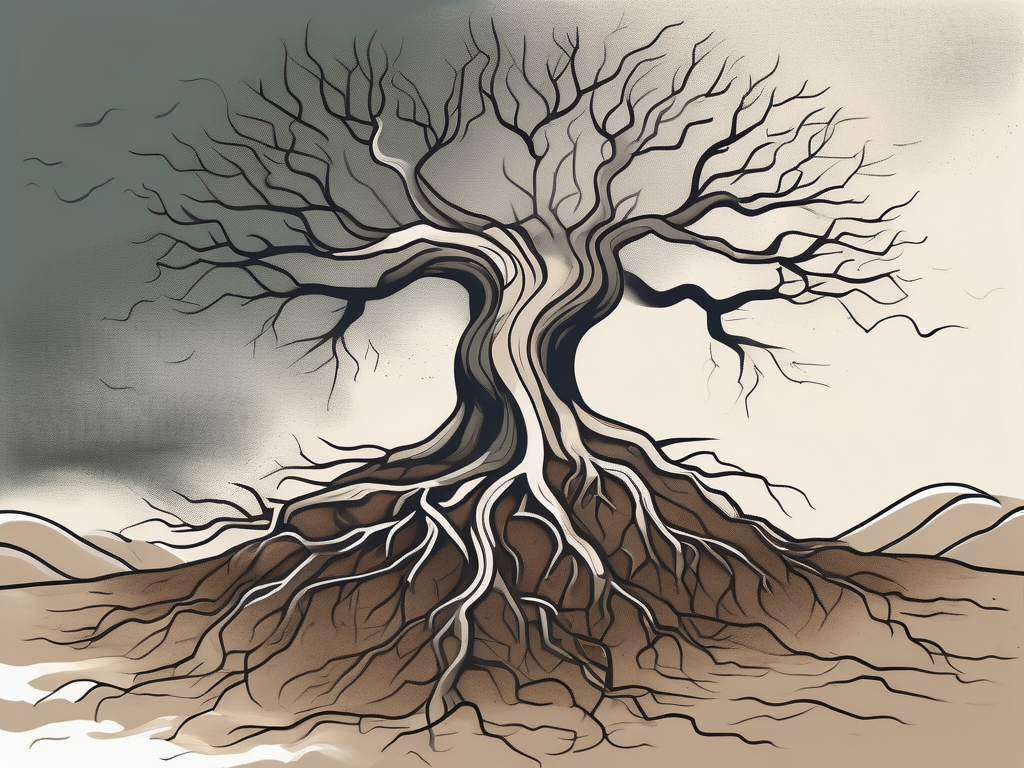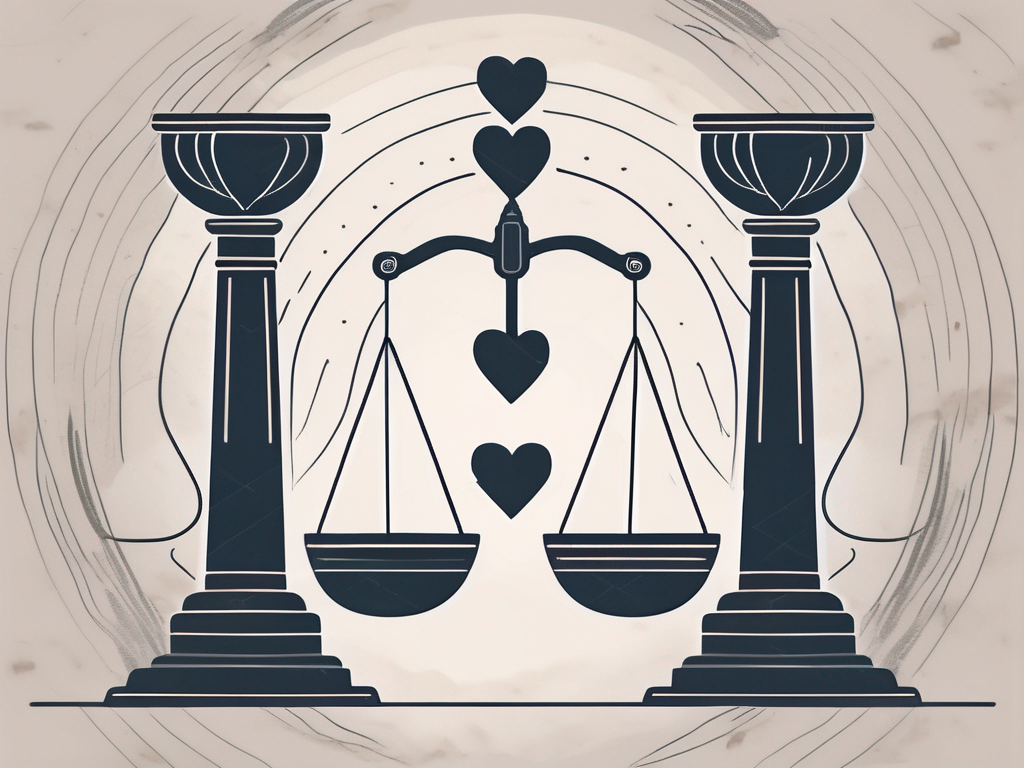Stoicism is a philosophy that has stood the test of time. Its teachings offer valuable insights into cultivating resilience and inner strength, making it a powerful tool for navigating the challenges of life. In this article, we will explore the philosophy of stoicism, its key principles, and how it intersects with resilience and inner strength. We will also delve into practical exercises for incorporating stoicism into our daily lives and examine its impact on mental health. Lastly, we will discuss the modern relevance of stoicism and its role in shaping our understanding of psychology.
Understanding the Philosophy of Stoicism
Stoicism traces its origins back to ancient Greece, where influential thinkers like Zeno of Citium and Epictetus developed its core tenets. At its core, stoicism emphasizes the importance of focusing on what lies within our control and accepting the things we cannot change. It teaches that by cultivating self-discipline and embracing the present moment, we can find tranquility and resilience in the face of adversity.
The Origins of Stoicism
The philosophy of stoicism emerged in the 3rd century BCE and was initially founded by Zeno of Citium in Athens. Zeno taught that by living in accordance with nature and using reason as a guide, individuals could achieve inner peace and live virtuous lives.
During this time, Athens was a bustling city filled with intellectual debates and philosophical discussions. Zeno’s teachings gained traction among the educated elite, who saw stoicism as a practical philosophy that could help them navigate the challenges of daily life.
Over time, stoicism gained popularity and attracted followers from various walks of life. Notable stoics such as Seneca, Marcus Aurelius, and Epictetus further developed and refined the philosophy, shaping its modern understanding.
Key Principles of Stoicism
Stoicism is built upon a set of key principles that serve as guiding principles for living a fulfilling life. These principles include:
- Focus on the controllable: Stoics believe that we should direct our attention and efforts towards the aspects of life that we have control over, such as our thoughts, actions, and attitudes.
- Develop resilience: Stoicism encourages us to embrace challenges and setbacks as opportunities for growth. By accepting adversity and learning from it, we can become more resilient individuals.
- Practice mindfulness: Stoics advocate for being fully present in the moment and cultivating awareness of our thoughts and emotions. This allows us to respond to situations with clarity and composure.
- Embrace virtue: Virtue is central to stoic philosophy, with principles like wisdom, courage, justice, and temperance being highly valued. Stoics believe that cultivating virtuous qualities leads to a meaningful and fulfilled life.
These principles are not mere theoretical concepts but practical guidelines that stoics strive to embody in their daily lives. By applying these principles, stoics aim to achieve a state of tranquility and inner peace, regardless of external circumstances.
Furthermore, stoicism emphasizes the importance of self-reflection and self-improvement. Stoics engage in regular introspection, examining their thoughts, actions, and beliefs to ensure alignment with their values and principles. This constant self-evaluation allows them to make necessary adjustments and grow as individuals.
Stoicism also encourages individuals to develop a strong sense of empathy and compassion towards others. Stoics recognize the interconnectedness of humanity and believe in treating others with kindness, fairness, and respect. By practicing empathy, stoics foster harmonious relationships and contribute to the well-being of society as a whole.
In conclusion, stoicism is a philosophy that offers practical guidance for living a fulfilling life. Its principles of focusing on the controllable, developing resilience, practicing mindfulness, and embracing virtue provide a framework for individuals to navigate the complexities of existence. By adopting stoic principles, one can cultivate inner peace, resilience, and a sense of purpose in the face of life’s challenges.
The Intersection of Stoicism, Resilience, and Inner Strength
At its core, stoicism provides a framework for developing resilience and inner strength. By embracing stoic principles, we can navigate life’s challenges with grace and maintain our sense of self amid turmoil.
Stoicism, an ancient philosophy founded in Athens by Zeno of Citium, has stood the test of time as a guiding force for individuals seeking to cultivate resilience and inner strength. With its emphasis on self-discipline, introspection, and acceptance of the natural order of things, stoicism offers a powerful approach to facing life’s adversities.
Stoicism and Resilience: A Powerful Combination
The teachings of stoicism offer powerful tools for developing resilience. By understanding that adversity is a natural part of life, stoics learn to adapt, bounce back, and persevere in the face of challenges. Rather than being overwhelmed by setbacks, they view them as opportunities for growth and ultimately become stronger individuals.
Stoics believe that the key to resilience lies in our ability to control our reactions to external events, rather than trying to control the events themselves. This mindset shift allows individuals to focus their energy on what they can control, such as their thoughts, emotions, and actions, rather than being consumed by what is beyond their influence.
Practical exercises, such as negative visualization and premeditatio malorum (the contemplation of potential misfortunes), help stoics prepare for adversity and develop the mental fortitude needed to overcome challenges. By envisioning worst-case scenarios and mentally preparing for them, stoics are better equipped to handle unexpected hardships when they arise.
Cultivating Inner Strength through Stoic Practices
Stoicism’s emphasis on self-discipline and introspection enables individuals to cultivate inner strength. By practicing self-control and recognizing the transitory nature of external circumstances, stoics develop a deep resilience that allows them to withstand the trials of life.
Meditation, a cornerstone of stoic practice, provides a space for individuals to quiet their minds, gain clarity, and cultivate inner strength. Through regular meditation, stoics learn to observe their thoughts without judgment, allowing them to detach from negative emotions and cultivate a sense of inner calm and resilience.
Journaling is another powerful stoic practice that aids in developing inner strength. By writing down their thoughts, emotions, and experiences, individuals gain a deeper understanding of themselves and their reactions to external events. This self-reflection allows for greater self-awareness and personal growth, ultimately strengthening one’s inner resolve.
Furthermore, stoics recognize the impermanence of external circumstances and the importance of focusing on what is within our control. By shifting their focus inward, stoics develop a sense of self-reliance and inner strength that transcends the ever-changing external world.
In conclusion, stoicism offers a profound approach to developing resilience and inner strength. By embracing stoic principles and engaging in stoic practices, individuals can navigate life’s challenges with grace, adaptability, and a deep sense of self. Stoicism reminds us that while we may not have control over external events, we have the power to shape our reactions and cultivate inner strength that can withstand any storm.
Applying Stoicism in Daily Life
Stoicism is not merely a philosophy to be studied; it is meant to be lived. By integrating stoic principles into our daily lives, we can experience the transformative power of this philosophy.
Stoicism, an ancient Greek philosophy founded by Zeno of Citium, teaches individuals to focus on what is within their control and accept what is not. It emphasizes the importance of virtue, self-discipline, and resilience in achieving a state of tranquility and inner peace.
One of the key aspects of stoicism is the recognition that external events are beyond our control, but our response to them is not. This philosophy encourages us to develop a mindset that is resilient in the face of adversity, enabling us to navigate life’s challenges with grace and composure.
Practical Stoic Exercises for Resilience
Stoic exercises offer practical ways to incorporate stoic principles into our daily routines. One such exercise is keeping a gratitude journal, where we reflect on and appreciate the things we have in our lives. This exercise helps shift our focus away from what we lack and towards what we possess, fostering resilience and contentment.
Another powerful exercise is the practice of voluntary discomfort, intentionally seeking out challenging situations to develop resilience and strengthen our ability to cope with discomfort. By willingly exposing ourselves to discomfort, we train our minds to become more adaptable and better equipped to handle adversity.
Furthermore, stoicism encourages us to practice negative visualization, a technique where we imagine the loss of the things we value most. This exercise helps us appreciate what we have in the present moment and prepares us mentally for potential setbacks, making us more resilient in the face of unexpected challenges.
Stoicism and Mindfulness: A Path to Inner Strength
Mindfulness, the practice of being fully present in the moment, aligns harmoniously with stoicism. By cultivating mindfulness, we can gain clarity in our thoughts and emotions, making it easier to navigate life’s ups and downs.
Engaging in mindfulness exercises such as mindful breathing and body scans helps us develop the ability to observe our thoughts and emotions without judgment, enabling us to respond to situations with equanimity and strength. By practicing mindfulness, we become more aware of our automatic reactions and can choose to respond in a way that aligns with our stoic values.
Stoicism and mindfulness also share a common emphasis on self-awareness. Both philosophies encourage individuals to examine their thoughts, beliefs, and values, fostering a deeper understanding of oneself and promoting personal growth.
Furthermore, stoicism teaches us to embrace the present moment and accept things as they are, while mindfulness helps us cultivate a non-judgmental attitude towards our experiences. This combination of stoicism and mindfulness allows us to develop inner strength and resilience, enabling us to face life’s challenges with a calm and composed mindset.
In conclusion, integrating stoic principles into our daily lives can have a profound impact on our well-being and overall outlook. By practicing stoic exercises for resilience and incorporating mindfulness into our routines, we can cultivate inner strength and navigate life’s uncertainties with grace and wisdom.
The Impact of Stoicism on Mental Health
Stoicism, an ancient philosophy that originated in Greece, has valuable implications for mental health and well-being. Its teachings provide a foundation for managing stress, building emotional resilience, and fostering a positive mindset.
Stoicism encourages individuals to focus on what they can control and accept what is beyond their control. By adopting this mindset, individuals can effectively navigate the ups and downs of life, leading to improved mental well-being.
Stoicism as a Tool for Stress Management
Stoic philosophy offers practical techniques for managing stress and reducing its impact on mental well-being. By reframing our perspective on stress, stoicism teaches us to view challenging situations not as burdens but as opportunities for growth.
One technique used in stoicism is the practice of “premeditatio malorum,” or premeditation of evils. This involves mentally preparing for potential setbacks and imagining worst-case scenarios. While this may seem counterintuitive, it allows individuals to develop resilience and better cope with stressful situations when they arise.
Additionally, stoicism emphasizes the importance of acceptance and letting go of what is beyond our control. This mindset shift helps reduce anxiety and fosters a sense of calm in the face of stressful circumstances. By focusing on what can be changed and accepting what cannot, individuals can find inner peace and maintain their mental well-being.
Building Emotional Resilience with Stoicism
Emotional resilience is essential for navigating life’s challenges, and stoicism provides a roadmap for developing this crucial trait. By recognizing that our emotions are within our control, stoics learn to respond to challenging situations with emotional balance and composure.
One practice that stoics engage in is negative visualization. This involves imagining worst-case scenarios or the loss of something valuable in order to appreciate what one currently has. By contemplating potential setbacks, individuals can develop emotional resilience and gratitude for the present moment.
In addition to negative visualization, stoics also engage in daily reflections. This practice involves reflecting on one’s actions, thoughts, and emotions at the end of each day. By examining past experiences, stoics can learn from their mistakes, identify areas for improvement, and develop emotional resilience.
Stoicism teaches individuals to approach life’s challenges with a sense of purpose and a focus on personal growth. By incorporating stoic principles into their daily lives, individuals can enhance their mental well-being, build emotional resilience, and cultivate a positive mindset.
The Modern Relevance of Stoicism
Despite its ancient origins, stoicism remains highly relevant in the modern world. Its teachings continue to resonate with individuals seeking guidance in navigating the complexities of life.
Stoicism in the 21st Century
Stoicism provides a timeless framework for personal growth and resilience, making it particularly relevant in the fast-paced and ever-changing 21st century. As we face unprecedented challenges and uncertainty, stoicism offers valuable tools to help us adapt, find meaning, and maintain our inner equilibrium.
The Role of Stoicism in Modern Psychology
The principles of stoicism have found their way into modern psychological interventions, such as cognitive behavioral therapy (CBT). CBT incorporates stoic ideas by emphasizing the importance of thoughts and beliefs in shaping our emotions and behaviors.
Stoicism’s influence on contemporary psychology showcases its enduring relevance and highlights the profound impact this ancient philosophy continues to have on our understanding of human nature and well-being.
In conclusion, stoicism’s power lies in its ability to help individuals harness resilience and inner strength. By understanding the philosophy of stoicism, applying its principles in our daily lives, and recognizing its impact on mental health and modern psychology, we can unlock the transformative potential of this ancient wisdom. Stoicism offers a practical and timeless framework for navigating life’s challenges, empowering us to find tranquility and fulfillment amidst the ever-changing landscape of existence.












